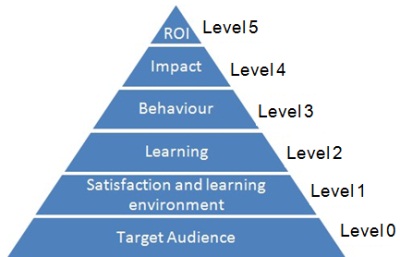Over the globe, there are myriads of events taking place every day: many by coincidence, others ad-hoc and most following meticulous planning and diligent risk-evaluating. Even in case of the latter, the effort made may not suffice. Has one significant module perhaps been neglected? By chance or by looking the other way? What again was this event’s objective? What, if a controller comes along and demands figures – as in ‘profit’ – which justify that ‘his’ budget was invested sensibly?
When objectives are not set in the initial phase of a project, which data would one collect to measure results? It is important to define the most relevant ones like business impact, participant behaviour and learning experience right from the beginning, experts say. This done, data collection and measurement become an easy task.
Whereas ROI may still be a cryptic acronym for regular beings, its meaning should be etched deeply into any professional (event organiser’s) mind. ROI is vital – and thus it is vain: it stubbornly ducks away once the show is over. Instead, it insists on being the protagonist from the first hour. If treated respectfully, it plays along amicably. Its only condition is: want to reap? Need to sow first!
Absence of ROI seems to be a common – yet tolerated – phenomenon. But there is soothing remedy administered in a seasoned expert’s clinic.
Dr. Elling Hamso is a Meeting Management Consultant and Managing Partner of Event ROI Institute. He writes and speaks frequently on subjects like ROI, Meeting Architecture, Supply Chain Management, Risk Management, and Meeting with the Millennium generation.
‘How much money did you earn and how much did you spend: that’s the profit and loss account. And what do you own and what do you owe: that’s the balance sheet. The same applies to ROI: how much did your event cost, and what income did it generate? If the ROI is positive, you have added value to your company – exactly what your shareholders are looking for’.
The great potential that meetings and events harbour to increase a company’s or organisation’s revenue and performance, is all too often not realised.
How to tackle the problem
A training programme helps to improve the value and to measure results. The initial two-day workshop is held in a spacious private apartment rather than in the exchangeable environment of a hotel’s meeting room and lunch is being prepared by the participants in a leisurely team building activity. With ‘slow learning’ as a motto, there is ample time given for reflection, discussions and practical exercises that allow insights into different types of events. The workshop is succeeded by six months of personal coaching that actively supports planners in putting their freshly acquired knowledge into practice.

The ROI pyramid.
ROI is simple and easy, says Elling. So much so, that elementary school children would well be able to comprehend and implement it, given the chance. A sobering fact for professional adults, but also a perfect incentive for them to usher in a ROI-ful future with their next event. Full details on company profile, workshops and training courses at www.eventroi.org
Copyright header image: Christina Feyerke
